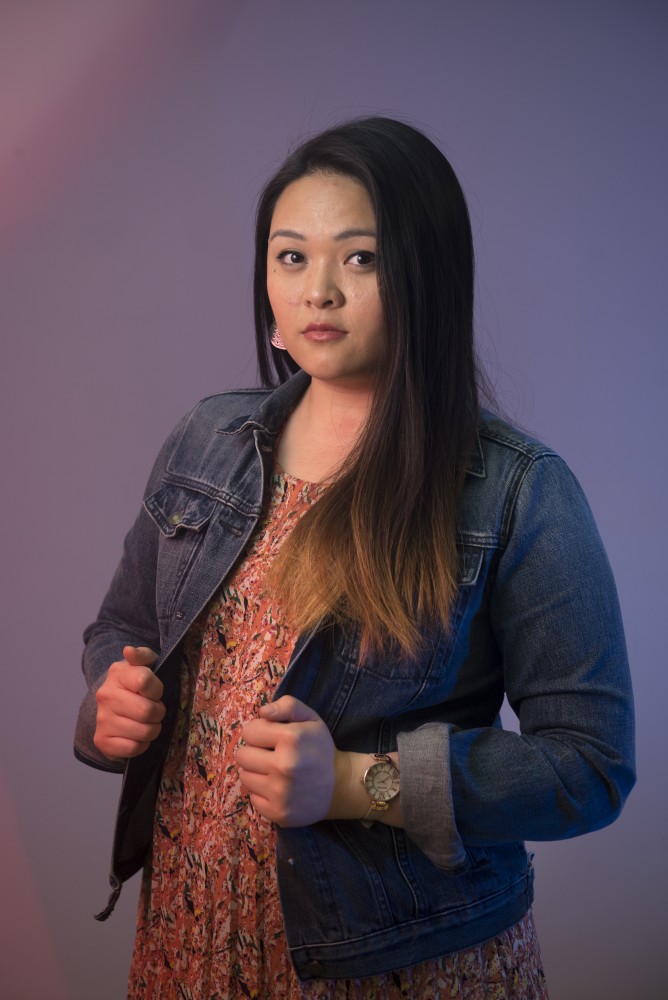 At 21 years old, University of Minnesota student Tiffany Hamidjaja is conducting research that experts say sheds new light on police-community relations.
At 21 years old, University of Minnesota student Tiffany Hamidjaja is conducting research that experts say sheds new light on police-community relations.
Hamidjaja, a psychology and sociology of law, criminology and deviance senior, has found in her two years of research that most sheriff’s departments lack formal trauma-sensitive policies for arresting parents in front of children. She says she hopes to design training for law enforcement and eventually craft statewide policy.
Her study is one of the first of its kind in the U.S., said her research supervisor Rebecca Shlafer, a University pediatrics professor.
“We know there are disparities and systemic inequities in where communities are policed,” Shlafer said. “When we consider how children are exposed to police … that’s certainly part of this broader conversation about, ‘do they see the police officers in a way that they’re helping or hurting?’”
Research in this field could limit childhood trauma, but also improve police-community relations long-term, she said.
“It’s not something that’s widely-researched yet,” said Bryce Peterson, who led a pioneering study on children and parental arrest for the Urban Institute. “Oftentimes, officers don’t necessarily think about how their actions … can affect children.”
Exploring the problem
About one-third of all children who have an incarcerated parent witness the parent’s arrest, Shlafer said.
“It’s really hard to think about a situation in which experiencing the parent’s arrest could be anything other than traumatic,” she said. “This is an event that sticks with [children], and they have very visceral memories of their parents being arrested.”
Peterson said misunderstandings often make officers reluctant to learning about trauma-informed arrest policies.
For example, many officers are trained to complete arrests as quickly as possible to limit potential security risks, he said, which can frighten and confuse kids. While the officers are working to protect the children’s physical safety, they can overlook negative psychological effects those actions can have, Peterson said.
“A lot of these people are parents themselves, so sometimes it’s just a matter of explaining what the problem is, and it’s amazing how much that can resonate and change practice,” he said.
Hamidjaja said officers can take practical steps to limit potential trauma during an arrest, like handcuffing parents out of a child’s view or keeping stuffed animals and blankets in squad cars.
Officers can also ask arrestees if they have dependents, she said. That way, police can ensure children aren’t left abandoned after the arrest.
“We’ve heard from several children who have experienced this themselves who … have talked about how traumatic this was for them and gave this really negative, scary perception of police officers. It really severed that trust,” Peterson said.
Arrest polices in Minnesota
In her research, Hamidjaja called every county sheriff’s department in the state. She found most lack official policies.
While some sheriff’s offices follow informal policies, there is still no accountability for officers in those cases, she said.
Hamidjaja also asked whether deputies would be interested in trauma-informed trainings. While some were enthusiastic, others expressed concern about paying for a training session, she said. Some also said a formal policy or training wasn’t necessary because they had yet to encounter any issues with how officers treated children of arrested parents.
This view is problematic, Hamidjaja said, because if officials aren’t proactive, generations of trauma could go unchecked.
She finished collecting data two weeks ago and is analyzing the information. She will create an infographic to share with the public this summer, she said, and will design and implement trainings in Minnesota with the help of community stakeholders.
Eventually, she wants to work with state legislators to pass laws that mandate these policies statewide.
“It’s just kind of like your responsibility to academia to start the conversation,” she said. “It starts a very-much needed conversation in our field and it starts a lot of different questions from it.”








